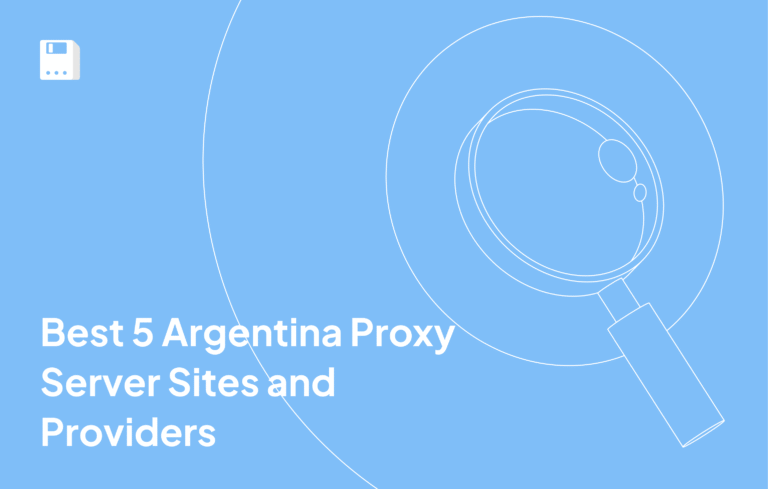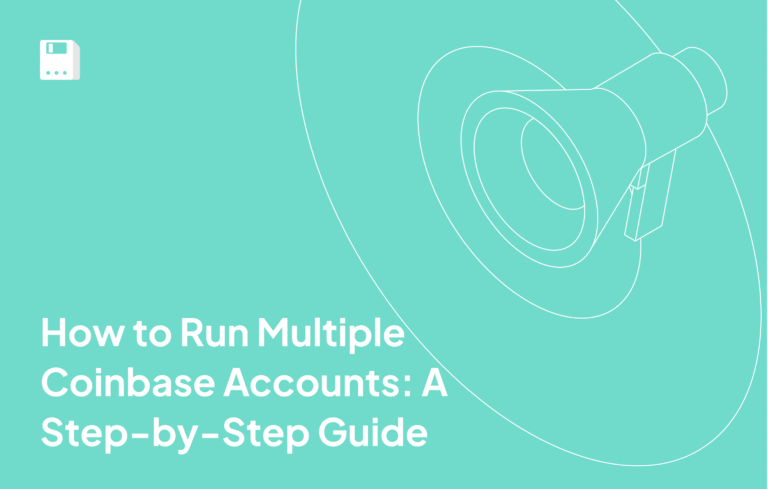Oculus Proxies is good for providing a vast range of plans, but the pricing doesn’t sit right with most people.
And despite offering so many plans, it lacks mobile proxies altogether.
Then there’s lack of transparency when it comes to average response time, which further pushes away interested parties.
So in summary, there is a mix of issues that prompt users to look for Oculus Proxies alternatives.
If you’re one of those people, you’ll walk away with the best Oculus Proxies alternative for your needs after reading this article.
I have discussed seven alternative proxy providers that beat Oculus Proxies in a number of areas.
Let’s explore them all.
TL;DR
| Provider | IP Pool Size | Countries Covered | Starting Price | Free Trial | Proxy Types |
| FloppyData | 65M+ | 195+ | $2.95/GB | ❌ No | Residential, Mobile, Datacenter, ISP |
| Oxylabs | 177M+ | 195+ | $4/GB | ✅ Yes | Continent, Country, State, City, Coordinates, ASN |
| MarsProxies | 1M | 190 | $1.98/month | ❌ No | Residential, datacenter, ISP, mobile & sneaker proxies |
| Decodo | 125M+ | 195+ | $6/month | ✅ Yes | Residential, Mobile, Datacenter, ISP |
| Rayobyte | 40M+ | 163 | $2.5/IP/month | ✅ Yes | Residential, Mobile, Datacenter, ISP |
| Nimbleway | 100M+ | 195 | $8/GB | ✅ Yes | Residential |
| Dataimpulse | Undisclosed | Undisclosed | $5 per 10 GB | ❌ No | Residential, Mobile, Datacenter |
Introduction to Oculus Proxies
Oculus Proxies used to be one of those sneaker copping-focused proxy services.
If you’re unaware of the sneaker-copping term, here’s a quick overview:
“When top sneaker brands launch limited edition sneakers, people use bots and proxies to buy them up quickly before the stock runs out. It isn’t just a quirky hobby for sneakerheads, but many also do this as a serious business because resale prices of these sneakers sometimes hit tens of thousands of dollars. Oculus was originally part of that wave.”
But somewhere along the line, it decided to ditch the “just for sneakers” label and start pitching itself as a full-on general proxy provider.
So now it offers all sorts of proxies, including premium ISP, datacenter, and residential.
There are three ISP proxy plans, of which, two are static US-only packages and one is a rotating worldwide plan. One of these is still exclusively aimed at sneaker and e-commerce events.
Then there are two plans of datacenter proxies, one contains shared IPs while the other, static IPs.
For residential IPs, you get three choices: a basic shared plan and two more expensive, exclusive IP plans geared toward sneaker tasks or e-commerce.
One thing missing here is mobile proxies. Oculus doesn’t offer them at all.
As for speeds, Oculus advertises anywhere between 10 Gbps and 100 Gbps on datacenter proxies. But let’s be real, those numbers are standard for network interfaces and don’t necessarily reflect real-world performance.
Residential proxies have no clear speed data listed.
Key Features
| Features | Details |
| Total Available IPs | 72 Million+ |
| Proxy Types | Residential, ISP, Datacenter |
| Geographic Distribution | 195+ countries |
| IP Targeting Precision | Country, state, city, ZIP, ASN |
| ASN/Coordinates Targeting | Yes |
| Free Trial | Yes |
| Unlimited bandwidth | No |
| Success Rate | 99.99% |
| Average Response Time | Undisclosed |
| IP Rotation | Auto, Manual |
| Supported Protocols | HTTP, HTTPS, SOCKS5 |
| 24/7 Support | Yes |
Pricing Details
- ISP Proxies: starts at $19.5/month (15 GB)
- ISP Premium Proxies: starts at $51/month (30 IPs)
- Events & E-commerce Proxies: starts at $14.5 (10 IPs)
- Shared Datacenter Proxies: starts at $9 (30 GB)
- Dedicated Datacenter Proxies: starts at $30 (25 IPs, 2.5 TB Bandwidth)
- Rotating Residential Proxies: starts at $45 (15 GB)
- Sneakers Residential Proxies: starts at $11 (5 GB)
- Tickets Residential Proxies: starts at $8 (5 GB)
Pros & Cons
| Pros | Cons |
| Vast range of plans | Residential proxies are read-only |
| Free trial available | No mobile proxies |
| Flexible payment options (weekly and monthly) | Speed claims lack transparency |
Top 7 Oculus Proxies Alternatives
The following are the seven best Oculus proxy alternatives that perform more than just a simple replacement option.
1. Floppydata (Best Oculus Proxies Alternative)
If you’re searching for the best Oculus Proxies alternative, I can say from my own testing that FloppyData easily takes the top spot.
FloppyData’s IPs have a significantly low chance of detection as they come from real devices rather than rented IP space.
When I stress-tested FloppyData’s proxies, they hit a 99.99% success rate on web requests and maintained 99.99% uptime, even under heavy loads.
Another standout feature is that there’s no limit on concurrent sessions.
I also found the geo-targeting surprisingly precise. You can narrow down by country, city, ASN, or ZIP code with hardly any failure.
During a week-long scraping test using residential proxies, I got full value for every gigabyte I consumed as there was no traffic cap throttling performance.
Aside from performance, FloppyData also offers extras for convenience like a Chrome extension, a built-in proxy checker, and even a free proxy server list.
Key Features
| Features | Details |
| Total Available IPs | 65 Million+ |
| Proxy Types | Residential, Mobile, Datacenter, ISP |
| Geographic Distribution | 195+ countries |
| IP Targeting Precision | Country, City, State, ASN / ISP targeting |
| ASN/Coordinates Targeting | Available |
| Free Trial | No |
| Unlimited bandwidth | Yes |
| Success Rate | 99.99% |
| Average Response Time | 0.3s |
| IP Rotation | Automatic, Per Request |
| Supported Protocols | HTTP, HTTPS, SOCKS5 |
| 24/7 Support | Yes (Live chat, Email, Telegram) |
Pricing Details
- Residential proxy: Starts at $2.95/GB
- Mobile proxy: Starts at $2.95/GB
- Datacenter proxy: Starts at $0.90/GB
- ISP Proxies: Starts at $5/IP
- High volume packages: Starts at $2/GB
Pros & Cons
| Pros | Cons |
| 99.9% network uptime | Slightly smaller IP pool than competitors like Oxylabs, and NetNut |
| Extremely fast response times (0.3s avg) | No free trial |
| Quick setup & ridiculously low error rates | |
| Little to no learning curve, easy-to-navigate user interface | |
| Free public proxy list | |
| Bandwidth and concurrency is unlimited | |
| Rotating and sticky sessions supported | |
| Proxy checker and Chrome extension come free | |
| Full anti-detect browser compatibility | |
| PAYG + crypto payment support | |
| There’s no expiry on unused data | |
| Live support via Discord, email, and chat |
2. Oxylabs
Oxylabs is one of the largest proxy providers I’ve tested.
One thing’s clear that their plans are designed for businesses rather than casual users.
If you’re running large-scale sneaker copping or reselling operations, Oxylab would be more capable for you.
That’s because their network is massive with over 100 million premium residential IPs, plus a total pool size of around 177 million IPs spread across 200 locations worldwide.
In my testing, Oxylabs performed like an enterprise-grade tool should. It was fast and had a consistently high success rate.
A unique thing about Oxylabs is that you also get access to a dedicated account manager, along with certifications and insurance coverage on its products. But again, that level of support comes at a premium price.
Another downside of the enterprise focus is that their tools aren’t exactly plug-and-play, and you’ll likely need prior experience to make the most of them.
Key Features
| Features | Details |
| Total Available IPs | 177 Million+ |
| Proxy Types | Residential, Mobile, ISP, Datacenter |
| Geographic Distribution | 195+ countries |
| IP Targeting Precision | Continent, Country, State, City, Coordinates, ASN |
| ASN/Coordinates Targeting | Yes |
| Free Trial | Yes |
| Unlimited Bandwidth | No |
| Success Rate | 99.82% |
| Average Response Time | 0.41s-1.1s |
| IP Rotation | Automatic, Custom interval |
| Supported Protocols | HTTP, HTTPS, SOCKS5 |
| 24/7 Support | Yes |
Pricing Details
- Residential Proxies: starts at $4/GB (50 GB)
- ISP Proxies: starts at $16/month (10 IPs)
- Mobile Proxies: starts at $9/GB (50 GB)
- Datacenter Proxies: starts at $180/month (200 IPs)
- Dedicated Datacenter Proxies: starts at $6.75/month (3 IPs)
Pros & Cons
| Pros | Cons |
| Free trial available | Expensive compared to other options |
| Large global IP network | Steep learning curve for new users |
| Highly responsive 24/7 live chat | Not as user-friendly as smaller consumer platforms |
| Advanced scraping tools and APIs | One-product-at-a-time dashboard experience |
| Chrome extension and third-party integration |
3. MarsProxies
MarsProxies is also one of those Oculus Proxies alternatives that developers and businesses should consider more than casual users.
The service has a relatively small pool of about 1 million ethically sourced IPs. This smaller pool size actually supports their transparency claims because it’s easier to verify where the IPs are coming from.
The performance of their IPs in my tests was decent, though not quite as fast as advertised. MarsProxies claims a 100 ms (0.1 s) response time, but I consistently measured around 640 ms (6.4 s).
That’s slower than their marketing suggests, but the uptime is actually 99.99% over the past 90 days, and they even display it publicly on their status page.
MarsProxies also provides a plan mainly for sneaker proxies.
The sticky sessions can last up to seven days which is far longer than the 24-hour maximum most providers allow.
Key Features
| Features | Details |
| Total Available IPs | 1 Million+ |
| Proxy Types | Residential, datacenter, ISP, mobile & sneaker proxies |
| Geographic Distribution | 190+ countries |
| IP Targeting Precision | Country, State, City |
| ASN/Coordinates Targeting | No |
| Free Trial | No |
| Unlimited bandwidth | Yes |
| Success Rate | 99.9% |
| Average Response Time | 0.1s |
| IP Rotation | Auto & Sticky Sessions (1-7 days) |
| Supported Protocols | HTTP, HTTPS, SOCKS5 |
| 24/7 Support | Yes |
Pricing Details
- Residential Proxies: starts at $4.99/GB (1 IP) (no expiration date)
- Datacenter Proxies: starts at $1.98/month (1 IP)
- Datacenter IPv6 Proxies: starts at $2/month (5 IPs)
- ISP Proxies: starts at $13.95/month (5 IPs)
- Mobile Proxies: starts at $93/month (Unlimited traffic)
- Sneaker Proxies: starts at $8.7/month (5 IPs)
Pros & Cons
| Pros | Cons |
| Diverse proxy types | No free trial |
| Clear documentation | Privacy policy indicates excessive data collection |
4. Decodo (formerly Smartproxy)
Decodo, which you might remember as Smartproxy, rebranded in April 2025. The company started in 2018 by reselling IP addresses, but now combines proxies from multiple sources to create a much larger and more versatile network.
Its residential proxy pool includes around 115 million IPs borrowed from real devices which makes it a good Oculus Proxies alternative. It also offers a 10 million–strong mobile proxy pool that covers most countries.
In testing, Decodo’s residential proxies reached a 99.95% success rate.
I also didn’t run into performance bottlenecks, and there were plenty of unique IPs in every region.
However, IP2Location sometimes flagged mobile IPs as non-mobile, especially in the US and Australia.
This is not a dealbreaker, but it’s definitely something to note if you’re planning projects where mobile IP verification matters.
Moreover, their residential and mobile proxies both require a backconnect setup, which is an extra step while switching proxy types.
Key Features
| Features | Details |
| Total Available IPs | 125 Million+ |
| Proxy Types | Residential, Mobile, Datacenter |
| Geographic Distribution | 195+ countries |
| IP Targeting Precision | Country, state, city, ASN, ZIP code, OS-level targeting |
| ASN/Coordinates Targeting | Yes |
| Free Trial | Yes |
| Unlimited bandwidth | Yes |
| Success Rate | 99.99% |
| Average Response Time | 0.3s |
| IP Rotation | Every connection request, Sticky session |
| Supported Protocols | HTTP, HTTPS, SOCKS5 |
| 24/7 Support | Yes |
Pricing Details
- Residential Proxies: starts at $6/month (2 GB)
- Static (ISP) Residential Proxies: starts at $9.99/month (3 IPs)
- Datacenter Proxies: starts at $6/month (10 GB)
- Mobile Proxies: starts at $15/month (2 GB)
Pros & Cons
| Pros | Cons |
| Extensive documentation and guides | Mobile IPs are occasionally misidentified as non-mobile |
| 14-day money-back guarantee | Requires backconnect setup for residential and mobile proxies |
| Free 3-day trial on all plans |
5. Rayobyte
Rayobyte has been around since 2015. It started as a US-based proxy provider and gradually moved upmarket to target enterprise clients.
Its network now spans more than 40 million IPs across 150+ countries, with support for both rotating and sticky sessions.
Its residential proxies can hold a session for 24 hours, while ISP proxies can stay sticky for up to 7 days.
According to Rayobyte, they obtain their residential proxies through a proprietary system called Cash Raven, where users give explicit permission to share bandwidth.
It also recently added rotating ISP proxies with the option to hold the same IP for two hours.
A rare thing it does is offer free trials on all proxy plans.
To get a free trial on residential proxies, you simply have to create an account. But for the free trial of data center and ISP proxies, you’ll need to contact sales.
During my own testing, there was a clear difference in speed between proxy types. Datacenter and ISP proxies had quick response times, but residential and mobile proxies were noticeably slower than competitors.
Even small sized web pages sometimes took seven to eight seconds to load.
Key Features
| Features | Details |
| Total Available IPs | 40 Million+ |
| Proxy Types | Residential, Mobile, Datacenter, ISP |
| Geographic Distribution | 163 countries |
| IP Targeting Precision | Country, state, city, ASN |
| ASN/Coordinates Targeting | yes |
| Free Trial | Yes, on all packages |
| Unlimited bandwidth | Yes |
| Success Rate | 99.99% |
| Average Response Time | Undisclosed |
| IP Rotation | Every request or sticky sessions |
| Supported Protocols | HTTP, HTTPS, SOCKS5 |
| 24/7 Support | Yes |
Pricing Details
- Residential Proxies: starts at $3.50/GB (1GB) (PAYG)
- Dedicated Datacenter Proxies: starts at $2.5/IP/month
- Rotating Datacenter Proxies: starts at $3.75/IP/month
- Static ISP Proxies: starts at $5/IP (5-99 IPs) (PAYG)
- Rotating ISP Proxies: starts at $56.25 (15 GB)
- Mobile Proxies: starts at $50/month (2 GB)
Pros & Cons
| Pros | Cons |
| Free 2-day trial for any package | Residential and mobile proxies are slow compared to competitors |
| Wide proxy coverage and flexible sessions | Proxy pool size is smaller than the top competitors |
| Clear documentation and setup guides |
6. Nimbleway
Nimbleway is an end-to-end data collection platform that offers proxies among other services like scraping APIs, headless browsers, etc.
Its proxy service is called Nimble IP, and residential proxies are the only proxy type available.
Nimble doesn’t publish the size or country breakdown of its pool, which makes it harder to judge its true reach. The reason for not advertising the figure could mean the network isn’t massive yet.
That aside, during my testing, targeting sneaker sites, although I’m not a sneakerhead, was a smooth experience.
I could drill down to city-level targeting and hold sticky sessions anywhere from 1 to 30 minutes.
Nimble also offers something it calls geo-sessions, where you can select only proven stable IPs that can last days or even weeks and mimic natural ISP rotation patterns.
As I said, the performance of Nimble’s IPs was good, but I couldn’t quite match their advertised 0.25-second response time or 99.9% success rate.
Key Features
| Features | Details |
| Total Available IPs | Undisclosed |
| Proxy Types | Residential |
| Geographic Distribution | Undisclosed |
| IP Targeting Precision | Country, state, city |
| ASN/Coordinates Targeting | No |
| Free Trial | 7-day free trial, contact sales |
| Unlimited bandwidth | No |
| Success Rate | 99.9% |
| Average Response Time | 0.25s |
| IP Rotation | Automatic or Sticky sessions |
| Supported Protocols | HTTP |
| 24/7 Support | Yes |
Pricing Details
- Pay As You Go: $8/GB (No Commitment)
- Beginner: $150 for 150 Credits ($7.8/GB)
- Essential: $600 for 600 Credits ($7.5/GB)
- Advanced: $1500 for 1500 Credits ($6.9/GB)
- Professional: $3000 for 3000 Credits ($6.1/GB)
Pros & Cons
| Pros | Cons |
| Free trial available | Proxy pool size and country coverage not disclosed |
| AI-powered proxy optimization | No SOCKS5 support |
| Only residential IPs available | |
| Subscription pricing is expensive |
7. Dataimpulse
Unlike Nimbleway, DataImpulse is for smaller projects and anyone looking for affordable proxies.
Its residential proxies plan starts at just $1 per GB with no expiration on unused bandwidth. This thing alone makes it one of the most budget-friendly Oculus Proxies alternatives on this list.
The provider claims a residential pool of 90 million IPs across 195 countries, so finding sneaker store locations shouldn’t be a challenge.
You can rotate IPs on every request or keep a session sticky for up to 120 minutes. If you want more precise targeting, the cost doubles. Only the basic country-level targeting is free of cost.
When I tested both regular and premium residential proxies, success rates were strong in both pools. The premium network connected a bit faster to every location, but the improvement wasn’t big enough to justify the price jump unless you’re extremely speed-sensitive.
One thing I saw most users complaining about was DataImpulse’s attitude of keeping things simple by offering no proxy manager or detailed analytics.
Key Features
| Features | Details |
| Total Available IPs | 90 Million+ |
| Proxy Types | Residential, Mobile, Datacenter |
| Geographic Distribution | 195 countries |
| IP Targeting Precision | Region, country, state, city, ZIP, ASN |
| ASN/Coordinates Targeting | Available |
| Free Trial | No |
| Unlimited bandwidth | No |
| Success Rate | 99.9% |
| Average Response Time | Undisclosed |
| IP Rotation | Auto and sticky sessions |
| Supported Protocols | HTTP, HTTPS, SOCKS5 |
| 24/7 Support | Yes |
Pricing Details
- Residential Proxies: starts at $5 per 5 GB ($1/GB)
- Premium Residential Proxies: starts at $5 per GB ($5/GB)
- Datacenter Proxies: starts at $5 per 10 GB ($0.5/GB)
- Mobile Proxies: starts at $5 per 2.5GB ($2/GB)
Pros & Cons
| Pros | Cons |
| Affordable pricing with no bandwidth expiry | No free trial available |
| Plenty of setup guides and documentation | No ISP proxies offered |
| Limited reporting and usage statistics |
Comparing Proxy Performance
| Provider | Success Rate | Avg. Response Time | Fraud Score (out of 100) |
| FloppyData | 99.99% | 0.3s | 32 |
| Oxylabs | 99.82% | 0.41s-1.1s | 38.98 |
| MarsProxies | 99.9% | 0.1s | 35 |
| Decodo | 99.99% | 0.3s | 32.72 |
| Rayobyte | 99.99% | Undisclosed | 47.39 |
| Nimbleway | 99.9% | 0.25s | 36.81 |
| Dataimpulse | 99.9% | Undisclosed | 42.59 |
Chosen the Best Oculus Proxies Alternative Yet?
Users still know Oculus Proxies for sneaker copping, although it has now become an all-purpose proxy provider.
While its current offerings are good, there are a number of Oculus Proxies alternatives that are simply better at being an all-purpose proxy provider.
This article introduced you to the top 7 of them, some of which must have spoken to your requirements.
But if you’re having a hard time deciding, I’d guide you toward FloppyData.
It’s a complete package from all angles.
There’s no proxy type missing, the plans are budget-friendly, rotation and sticky sessions features are all there, and the performance doesn’t disappoint either.
So make the smart choice and sign up for FloppyData today.
FAQ
Why look for Oculus Proxies alternatives?
Oculus may lack some proxy types, speed details, or geo coverage. Other providers offer broader options, faster performance, and more transparent conditions.
Which alternatives are highlighted in the blog?
The top options include FloppyData, LumiProxy, MarsProxies, Massive Proxies, Geonix, Proxyline, and Novada - all reliable providers with unique strengths.
Share this article:
Table of Contents
Proxies at $1
Get unlimited possibilities

















